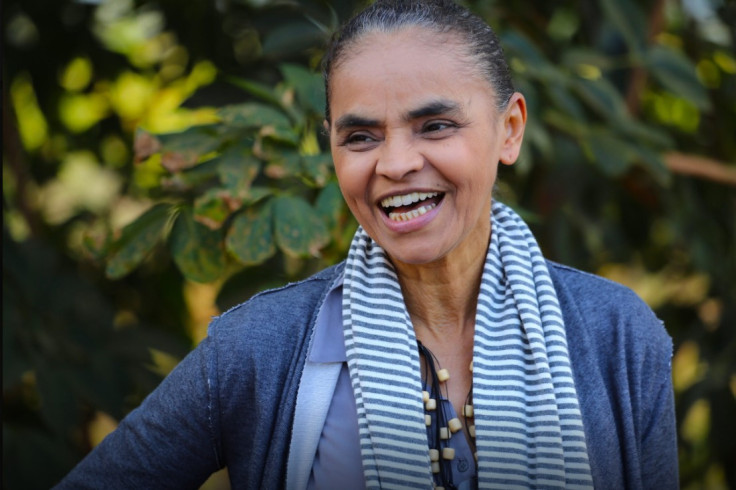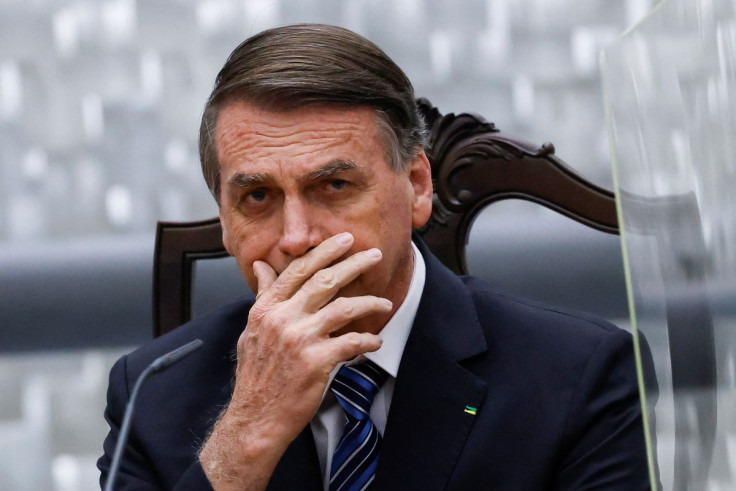
Brazil's environment minister, Marina Silva, has stated that former president Jair Bolsonaro should be investigated for genocide as she plans an operation to remove illegal gold miners from the scene of a humanitarian disaster on Indigenous land.
Armed police and environmental protection officials will begin the first of several operations by plane and helicopter in the coming days to drive out thousands of miners who overflowed into the territory of the Yanomami Indigenous people of Brazil during Bolsonaro's presidency, polluting Amazonian rivers, destroying the rainforest, and causing Brazil's worst health crisis in recent memory.
After pictures of malnourished children and elderly people in the area emerged and the Sumaúma news platform revealed 570 Yanomami infants died from diseases that could have been prevented during Bolsonaro's term, up 29% from the previous four years, the president, Luiz Inácio Lula da Silva, recently declared an emergency.
In a wide-ranging interview, Silva said Bolsonaro should be held accountable. "I think he should be investigated for committing genocide," she said. "The ministry of justice itself is already forwarding the action," reports The Guardian.
The problem is Lula's first significant obstacle to restoring the health of the forest and its keepers. It's also an opportunity for the new center-left administration to show its strength and commitment to protecting the Amazon after the far-right Bolsonarist mob's failed coup attempt on Jan. 8 in Brasilia.
From 2003 to 2006, Silva served as the first Lula administration's environment minister and implemented initiatives that resulted in an 83% decrease in Amazon deforestation. She said Bolsonaro had "annihilated" environmental policies, which had a detrimental effect on those who live in forests and stalled the nation's efforts to preserve the environment and cut carbon emissions.
The world's most biodiverse country will not just get back on track under the new government, she said; far more ambitious objectives would be pursued. By 2030, Lula has pledged to stop all deforestation, stop the spread of agriculture, and safeguard all of Brazil's significant biomes.
"This has no future ... no one can be an agricultural power by competing on the bottom path. We are going to compete on the high path, creating skilled jobs and using technology."
"We can already triple our production without having to cut down another tree."
Silva said better use of degraded land with advanced practices and equipment could allow Brazil's yields to increase. The government plans to offer 20, 30 or 40-year concessions for the recovery of degraded lands with native species, paid for by carbon credits.
Additionally, the conservation vision is broader. The government prioritized the conservation of the Amazon twenty years ago. The Cerrado savannah, the Pantanal wetlands, the Atlantic Forest, the Pampas grasslands, and the semi-arid Caatinga are just a few of Brazil's outstanding ecosystems that Lula and Silva have committed to safeguarding this time.
Um exemplo de ativista e defensora do meio ambiente. @MarinaSilva é uma mulher que representa a força de todos aqueles que lutam para salvar nossos biomas, nossos rios, nossa Amazônia. 🇧🇷✊🏾#13BienalDaUNE
— Bruna Brelaz 💙 (@brunabrelaz) February 4, 2023
📸 @kboughoff pic.twitter.com/yb3kCxikma
Silva urged for other nations to contribute technical assistance, investments, trade, and financial resources to help Brazil's economy adapt. The Amazon Fund, which was established to save the rainforest, has received large contributions from Germany and Norway. The UK is considering whether to contribute. Although US Vice President Joe Biden has pledged billions of dollars to protect tropical rainforests, nothing has yet materialized. To prevent imports linked to deforestation, the EU recently passed legislation. Silva also urged wealthier countries to form alliances and encourage the sale of sustainable goods made by indigenous, riverine, and smallholder communities as well as ethical agricultural firms. If the government and its international trading partners are unable to provide viable economic alternatives, she predicted Bolsonaro and his followers will return.
"It is about convincing people that there is no point in having a profit for 10 years if the cost is to destroy something for the rest of our lives."
Silva acknowledged that a four-year term of office was not enough time to complete such an ambitious program, but she insisted that the government could lay the foundations for the transition by taking practical steps and convincing the public, particularly the 25 million residents of the Amazon, that there was a better way to go about things.

© 2025 Latin Times. All rights reserved. Do not reproduce without permission.



